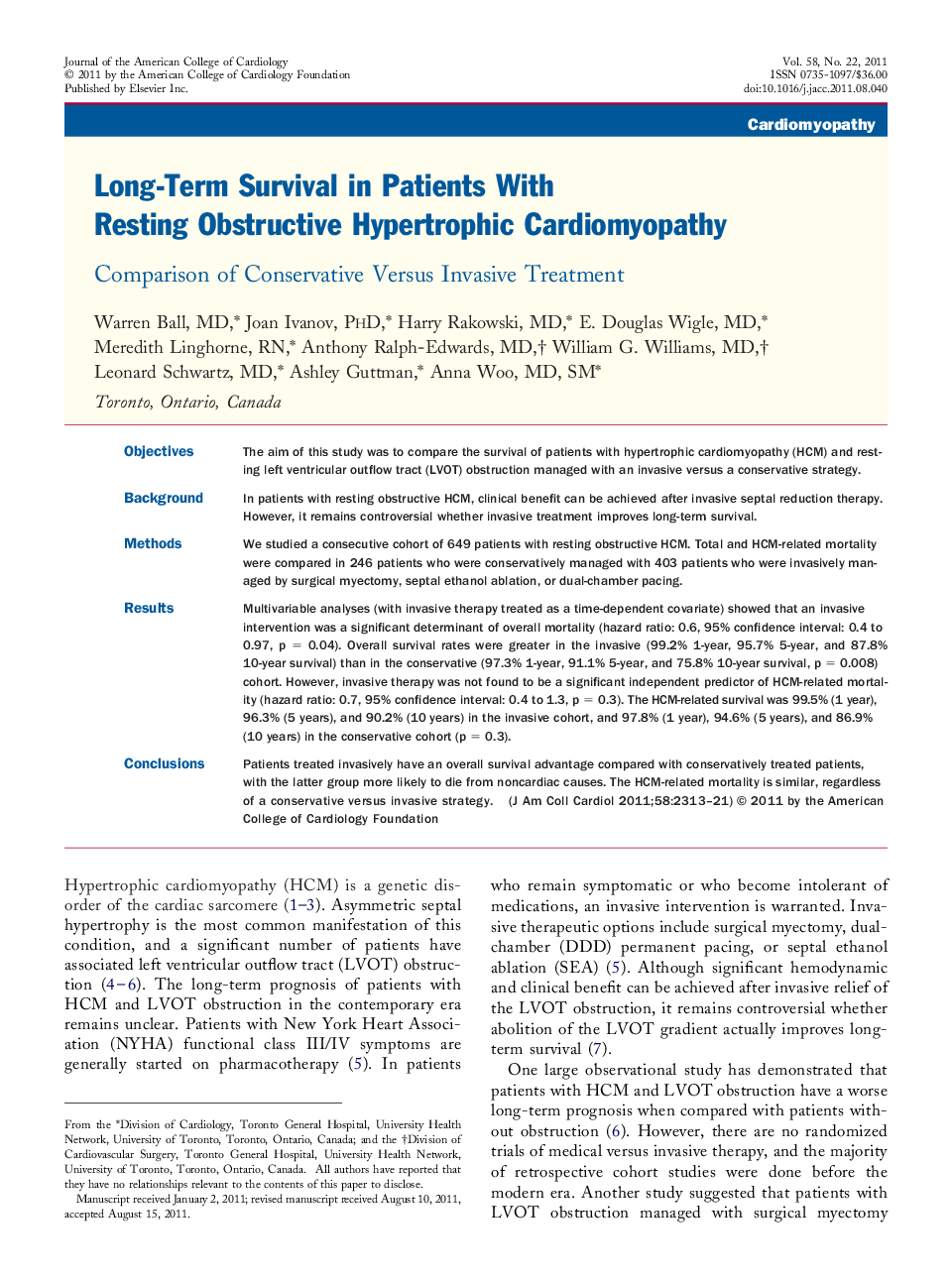| کد مقاله | کد نشریه | سال انتشار | مقاله انگلیسی | نسخه تمام متن |
|---|---|---|---|---|
| 2947659 | 1577236 | 2011 | 9 صفحه PDF | دانلود رایگان |

ObjectivesThe aim of this study was to compare the survival of patients with hypertrophic cardiomyopathy (HCM) and resting left ventricular outflow tract (LVOT) obstruction managed with an invasive versus a conservative strategy.BackgroundIn patients with resting obstructive HCM, clinical benefit can be achieved after invasive septal reduction therapy. However, it remains controversial whether invasive treatment improves long-term survival.MethodsWe studied a consecutive cohort of 649 patients with resting obstructive HCM. Total and HCM-related mortality were compared in 246 patients who were conservatively managed with 403 patients who were invasively managed by surgical myectomy, septal ethanol ablation, or dual-chamber pacing.ResultsMultivariable analyses (with invasive therapy treated as a time-dependent covariate) showed that an invasive intervention was a significant determinant of overall mortality (hazard ratio: 0.6, 95% confidence interval: 0.4 to 0.97, p = 0.04). Overall survival rates were greater in the invasive (99.2% 1-year, 95.7% 5-year, and 87.8% 10-year survival) than in the conservative (97.3% 1-year, 91.1% 5-year, and 75.8% 10-year survival, p = 0.008) cohort. However, invasive therapy was not found to be a significant independent predictor of HCM-related mortality (hazard ratio: 0.7, 95% confidence interval: 0.4 to 1.3, p = 0.3). The HCM-related survival was 99.5% (1 year), 96.3% (5 years), and 90.2% (10 years) in the invasive cohort, and 97.8% (1 year), 94.6% (5 years), and 86.9% (10 years) in the conservative cohort (p = 0.3).ConclusionsPatients treated invasively have an overall survival advantage compared with conservatively treated patients, with the latter group more likely to die from noncardiac causes. The HCM-related mortality is similar, regardless of a conservative versus invasive strategy.
Journal: Journal of the American College of Cardiology - Volume 58, Issue 22, 22 November 2011, Pages 2313–2321